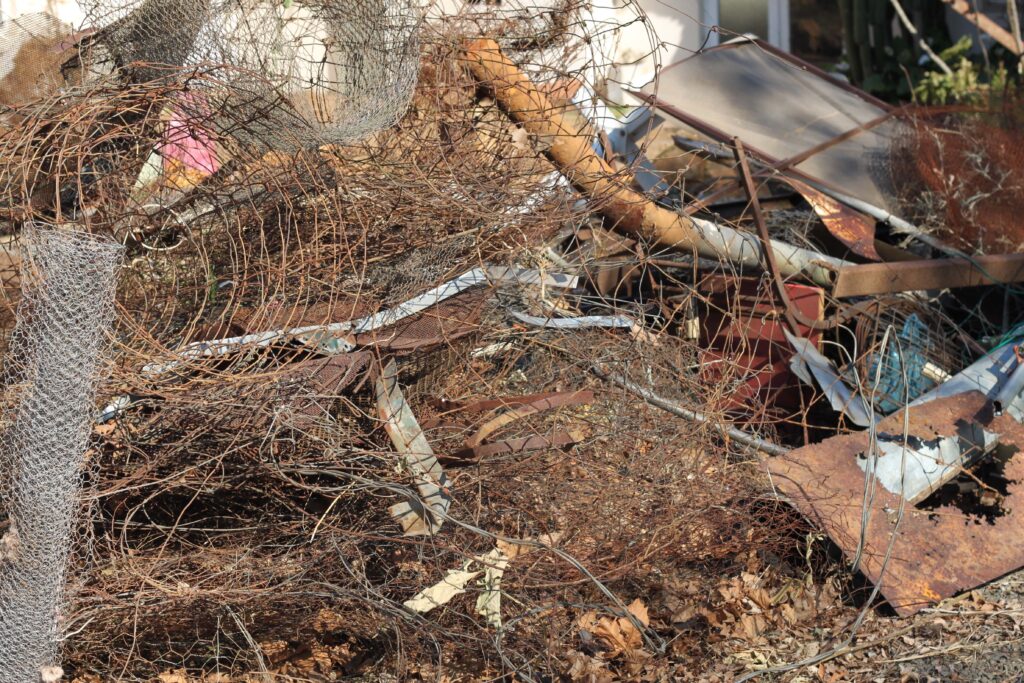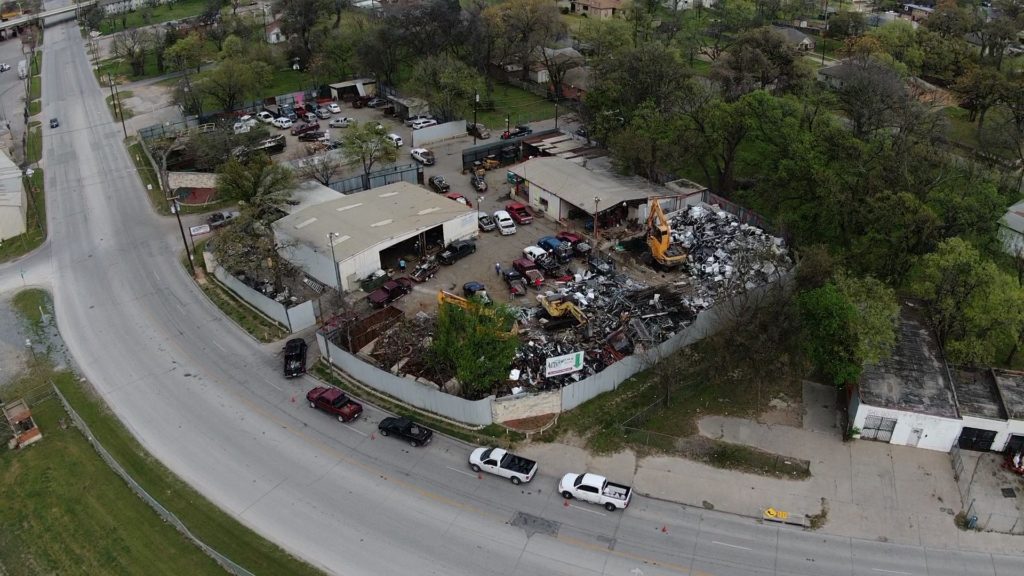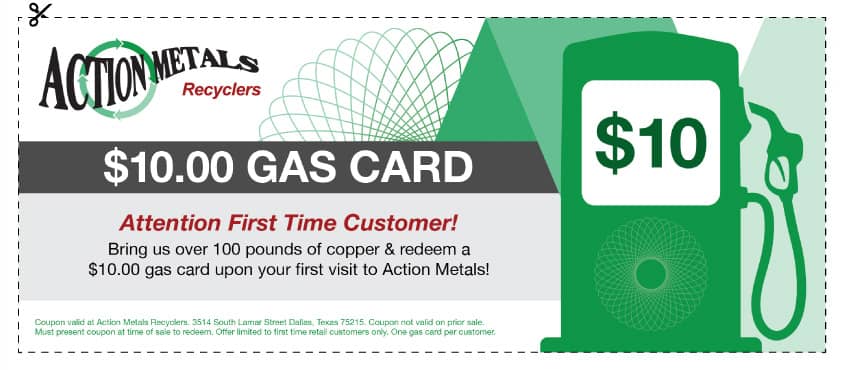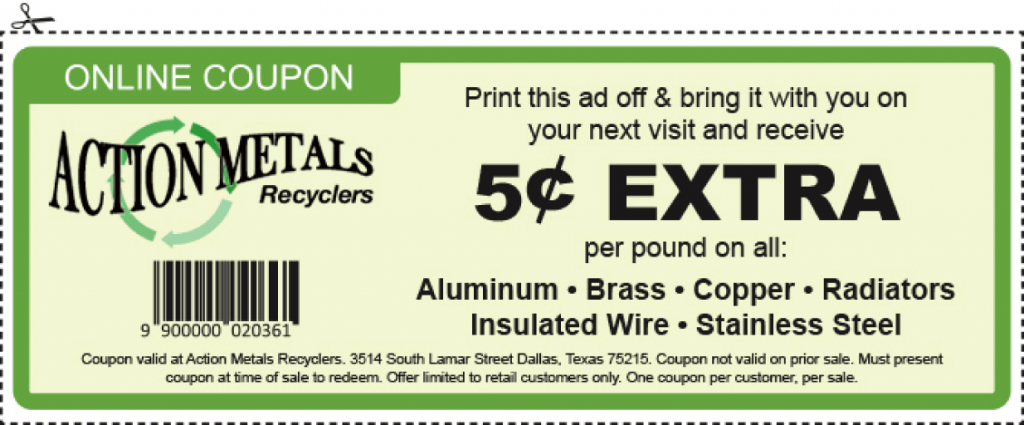That old metal fence or gate might have reached the end of its useful life on your property, but that doesn’t mean it’s destined for the landfill. Metal is a valuable recyclable material, and recycling your old fence is a great way to be environmentally responsible and potentially put some cash in your pocket.
At Action Metals, we make metal recycling easy and rewarding. Here’s a step-by-step guide to recycling your metal fencing and gates in Dallas:
1. Identify the Metal Type
Before you start dismantling your fence, it’s helpful to identify the type of metal it’s made of. This will help you determine its scrap value and find the right recycling facility. Here are some common types of metal fencing:
- Steel: Steel is a popular choice for fencing due to its strength and durability. It’s often used for ornamental fences, chain link fences, and security fences.
- Iron: Iron, particularly wrought iron, is often used for decorative fences and gates. It’s known for its classic elegance and sturdiness.
- Aluminum: Aluminum is a lightweight and corrosion-resistant metal, making it a good choice for fences in coastal areas or those exposed to the elements.
If you’re unsure about the type of metal, a magnet can be a helpful tool. Ferrous metals, like steel and iron, will be attracted to a magnet, while non-ferrous metals, like aluminum, will not.
2. Prepare the Fence for Recycling
Once you’ve identified the metal type, it’s time to prepare the fence for recycling. This involves removing any non-metal components and breaking down the fence into manageable pieces.
Remove Non-Metal Components
Take the time to remove any non-metal components from your fence, such as wood posts, plastic caps, or concrete footings. These materials cannot be recycled with the metal and should be disposed of separately. Properly separating these materials ensures that the metal recycling process is efficient and that you receive the best possible value for your scrap.
Dismantle the Fence
Carefully dismantle the fence sections, removing them from the posts and any supporting structures. If the fence is large or complex, you may need to use tools like a saw or bolt cutters to break it down into smaller, more manageable pieces. This not only makes transportation easier but also helps the scrap yard process the metal more efficiently.
Separate Different Metals
If your fence contains different types of metal, such as steel posts and aluminum panels, separate them into distinct piles. This is important because different metals have different scrap values and are often recycled through different processes. By separating the metals beforehand, you ensure that each type is recycled appropriately and that you receive the correct value for each.
3. Find a Reputable Scrap Metal Yard
Not all scrap yards are created equal. It’s important to find a reputable yard that offers fair prices, accurate weighing, and prompt payment. Do your research online, check reviews, and ask for recommendations from friends or neighbors.
Look for a scrap yard that has experience handling fencing and gates. Some yards may have specialized equipment for processing large or bulky metal items. They may also offer services like pickup or container drop-off, which can be helpful if you have a large quantity of scrap metal or lack the means to transport it yourself.
4. Transport the Scrap Metal
Once you’ve found a scrap yard, it’s time to transport your metal fencing and gates. If you have a truck or trailer, you can likely transport the scrap yourself. Make sure the scrap is properly secured to prevent it from shifting or falling off during transport.
If you don’t have a suitable vehicle or the scrap is too large to transport yourself, consider contacting the scrap yard to inquire about pickup services. Many yards offer pickup for larger quantities of scrap metal, often for a small fee or even for free, depending on the type and amount of metal.
5. Get Paid!
Once you arrive at the scrap yard, the staff will weigh your metal and determine its value based on the current market prices. Make sure you understand how the weighing process works and that you’re being paid for the accurate weight of your scrap. Reputable yards use certified scales and provide transparent weighing practices.
Payment methods vary depending on the scrap yard. Some yards pay cash on the spot, while others may issue a check or direct deposit. Inquire about the yard’s payment policies beforehand so you know what to expect.
Action Metals | Your Partner in Metal Fence Recycling
At Action Metals, we’re committed to making metal recycling easy and rewarding. We accept all types of metal fencing and gates, including steel, iron, and aluminum. We offer:
- Competitive Prices: We pay top dollar for your scrap metal, ensuring you get the best possible value.
- Accurate Weighing: We use state-certified scales to guarantee accurate weighing and fair payment.
- Prompt Payment: We offer various payment options to suit your needs, including cash, check, and direct deposit.
- Convenient Location: We’re conveniently located in Dallas, making it easy for you to drop off your scrap metal.
- Environmentally Responsible Practices: We adhere to strict environmental regulations, ensuring your scrap metal is recycled responsibly.
Recycling your old metal fencing and gates is a responsible and potentially profitable way to dispose of unwanted materials. By following these simple steps, you can contribute to a more sustainable future while clearing out your property.
Please reach out to Action Metals today for a quote or to learn more about our metal recycling services.








